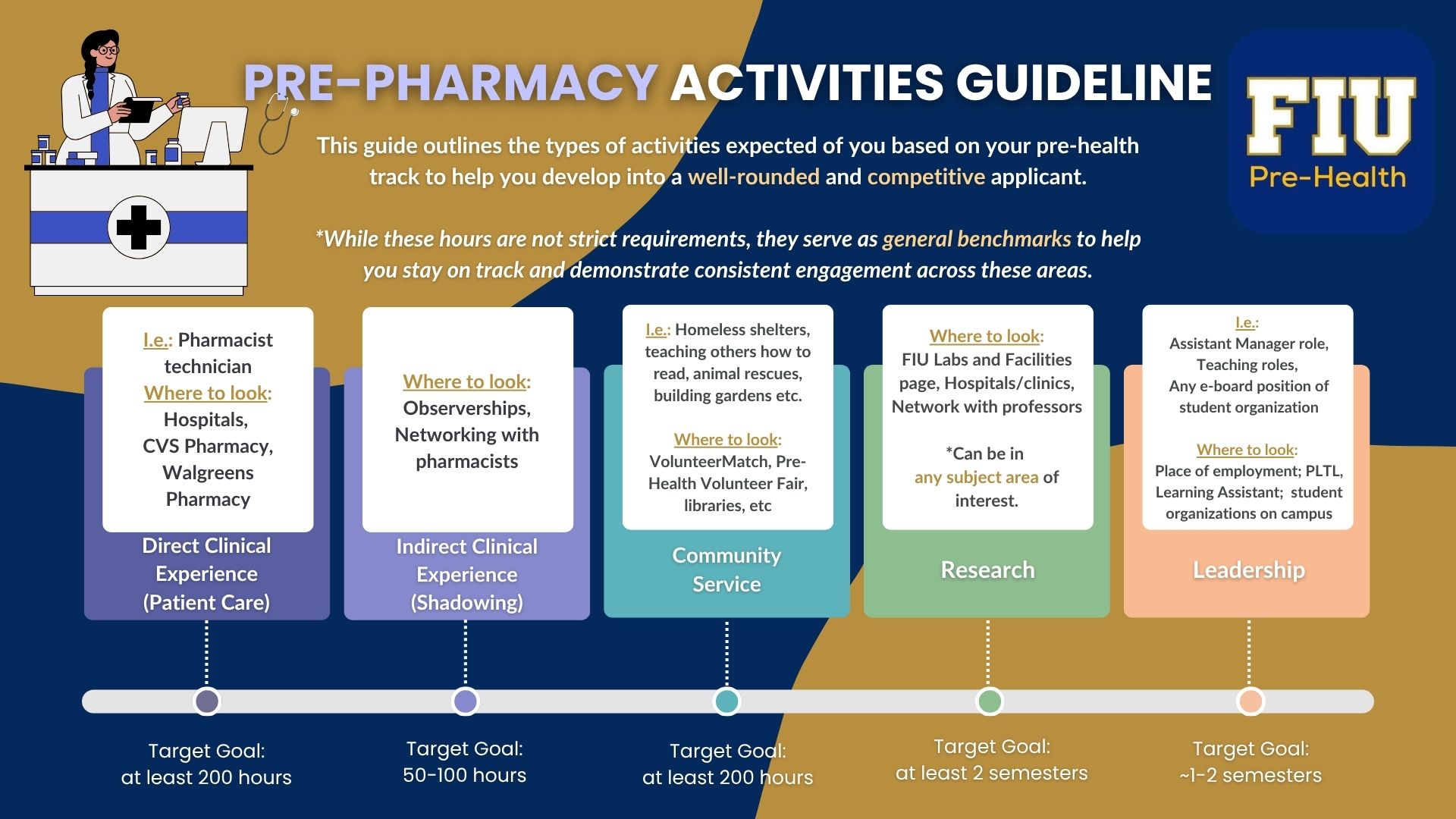Pharmacists dispense prescription medications to patients and offer expertise on safe use. They also may conduct health and wellness screenings, provide immunizations, oversee the medications given to patients and provide advice on healthy lifestyles. Some pharmacists create customized medications by mixing ingredients themselves, a process known as compounding.
Admission requirements differ between institutions. Some include a bachelor's degree from an accredited U.S. college or university, some will allow students to begin with a minimum of 66 credit hours.
For most programs, prerequisites includes:
- Two semesters of general Biology and lab
- Two semesters of general Chemistry and lab
- Two semesters of Organic Chemistry and lab
- One semester of Physics and lab
- Biochemistry
- Microbiology
- Anatomy & Physiology with labs
- Calculus
- Statistics
- Public Speaking
- Psychology or Sociology
For more detailed information, review our Pre-Pharmacy Prerequisite guide.
It is a student's responsibility to check with individual programs regarding the coursework needed to matriculate at their institution.
Being a competitive applicant:
Typically accepted students have a GPA above 3.0 (overall and in science courses).
Use our GPA Calculator Spreadsheet to see where you stand.
For more information on the application process, also review: https://pharmacyforme.org/
Application cycle information:
With the pharmacy school application process taking one full year, students are highly encouraged to think about their application timeline in advance:

Contact Us
Pre-Health Advising
Modesto A. Maidique Campus
11200 SW 8th Street, DM 337
Miami, FL 33199
305-348-0515
preprofc@fiu.edu
